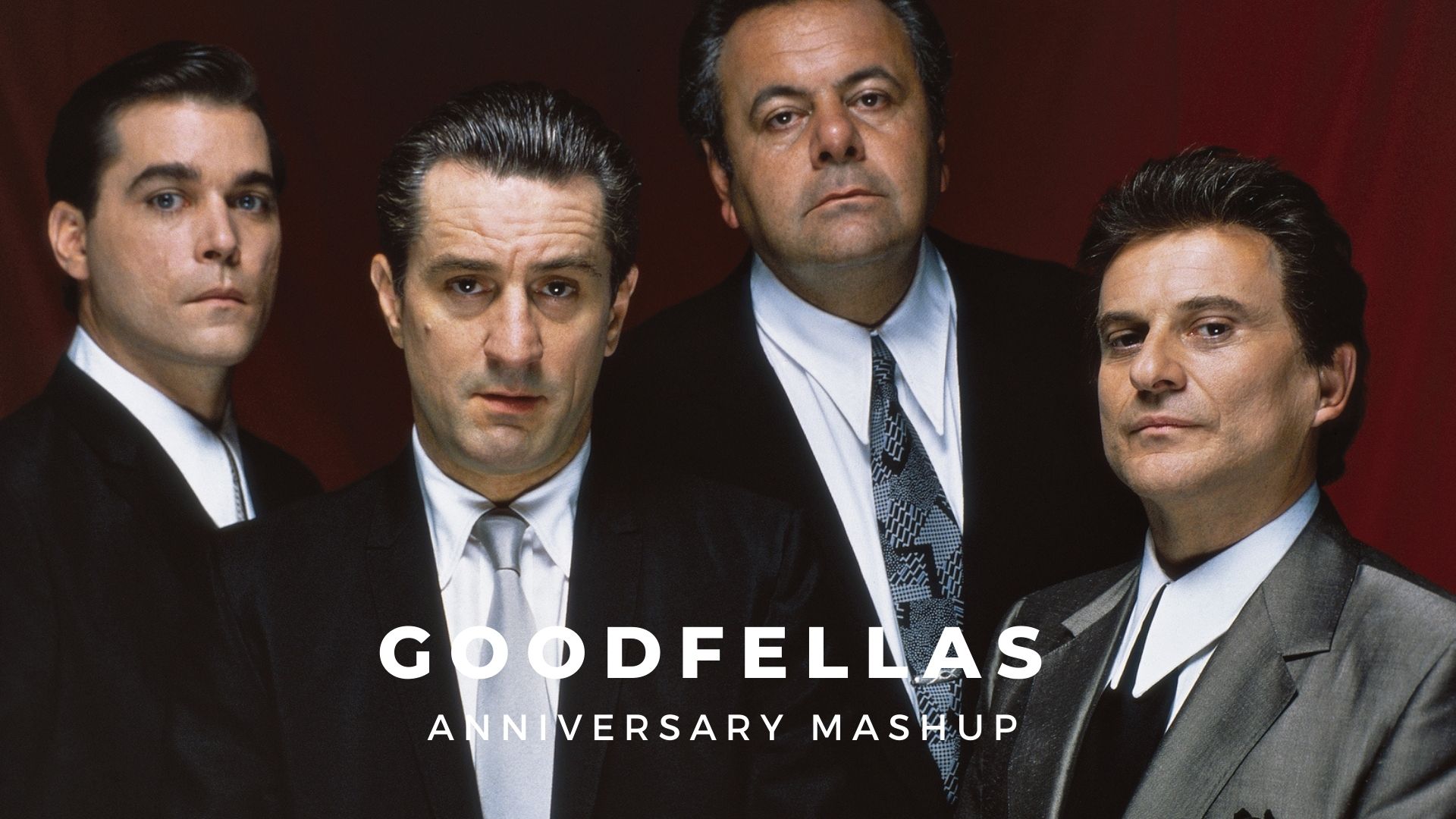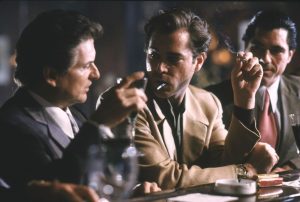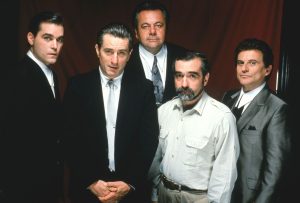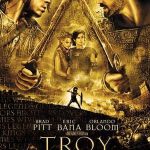“Goodfellas 1990”

Goodfellas (1990) – Detailed Review
Genre: Crime, Drama
Director: Martin Scorsese
Main Cast: Ray Liotta (Henry Hill), Robert De Niro (James “Jimmy” Conway), Joe Pesci (Tommy DeVito), Lorraine Bracco (Karen Hill), Paul Sorvino (Paul Cicero)
Synopsis:
Goodfellas chronicles the life of Henry Hill, a half-Irish, half-Sicilian young man who becomes captivated by the glamour, power, and loyalty of the New York mob. The story begins with Henry’s early fascination with the mob as a teenager and follows his rise through the ranks alongside his friends Jimmy Conway and Tommy DeVito. As he grows into the world of organized crime, Henry’s journey takes him through the highs and lows of mob life—lavish parties, dangerous jobs, violent power struggles, and, ultimately, betrayal. The film captures both the allure and the dark underbelly of a life devoted to crime.
Storytelling & Themes:
Scorsese’s Goodfellas is both a gritty exploration and a vibrant celebration of mob life, diving into themes of loyalty, betrayal, greed, and moral decay. Through Henry’s eyes, we witness the seductive pull of wealth and power as well as the personal costs that come with it. Scorsese doesn’t just focus on the violence and crime; he explores the tight-knit community of mobsters, the thrill of belonging, and the code of loyalty that binds them together. However, as Henry’s involvement in the mob deepens, the story reveals the destructive nature of a life built on crime, making Goodfellas a cautionary tale about ambition and loyalty gone awry.
Performance:
Ray Liotta delivers a powerful performance as Henry Hill, capturing the character’s mix of charisma, vulnerability, and moral ambiguity. His narration gives the film a personal touch, bringing viewers into Henry’s mindset and justifying his choices in a world where crime seems not only acceptable but also desirable. Robert De Niro, as Jimmy Conway, brings a quiet menace to the role, portraying a character whose charm hides ruthless ambition. Joe Pesci’s performance as Tommy DeVito is unforgettable; he embodies volatility and danger, famously delivering one of cinema’s most terrifying and iconic scenes with his “Funny how?” monologue. Lorraine Bracco as Karen Hill offers a perspective of the mob world from the outside, capturing the simultaneous allure and horror of being married to a mobster.
Direction & Cinematography:
Martin Scorsese’s direction is masterful, creating a fast-paced, dynamic narrative that pulls audiences into the mob world with smooth, tracking shots, jump cuts, and close-ups. The famous Copacabana tracking shot, where the camera follows Henry and Karen through the club’s backdoor entrance, perfectly encapsulates the seductive appeal of Henry’s life and immerses viewers in the glamour of the mob. Michael Ballhaus’s cinematography captures both the dark, smoky interiors of mob hangouts and the frenetic energy of the action, blending glamour and grit to show both the beauty and the brutality of organized crime.
Soundtrack:
The soundtrack is a defining element of Goodfellas, with Scorsese using music not only to set the tone but also to reflect the time periods in which the story unfolds. Each song choice—from Tony Bennett to The Rolling Stones and Eric Clapton—feels meticulously selected, heightening the emotion of every scene. The music guides the viewer through the years, accentuating Henry’s rise and fall, from the celebratory sounds of the 1960s to the darker, more frenetic tunes of the late 1970s and 1980s as Henry’s life spirals out of control.
Cultural Impact:
Goodfellas has become one of the most influential mob films, redefining the genre with its unflinching realism and nuanced storytelling. The film’s impact on pop culture is profound, inspiring countless homages, parodies, and references in other films and TV shows, particularly within the gangster genre. Scorsese’s unique approach to storytelling and his character-driven narrative influenced other iconic works like The Sopranos, which shares its exploration of the complexities of mob life. Pesci’s portrayal of Tommy DeVito and the infamous “Funny how?” scene have left a lasting legacy, making Goodfellas an endlessly quotable and enduring classic.
Conclusion:
Goodfellas is a landmark in cinematic storytelling, combining thrilling crime drama with rich character development and unmatched directorial style. With its intense performances, captivating narrative, and raw portrayal of mob life, it remains a definitive entry in Scorsese’s filmography and a must-watch for fans of the crime genre. The film’s depiction of loyalty, betrayal, and the cost of ambition offers a haunting look into the seductive, destructive allure of organized crime.
Suggested Video for You:
Explore the making of Goodfellas and the real-life inspirations behind the story, with insights from Scorsese, cast members, and the true-life figures who inspired the characters.











